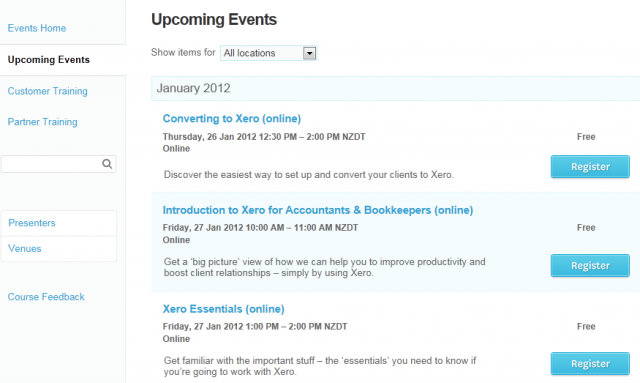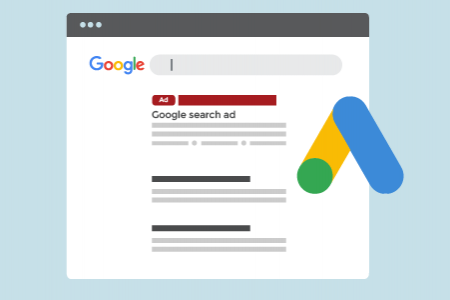We aim to respond to all messages within 1 business day. You'll be hearing from us soon!
In the meantime, perhaps you'd like to learn more...
Using Content Marketing to Communicate Without Selling
It's no secret that over recent years consumers have grown increasingly immune to traditional advertising methods. The advent of MySky has meant many New Zealanders are no longer forced to watch TV commercials, meanwhile magazine and newspaper readers have long ago learned to ignore the print ads that add clutter to the stories we're really interested in reading about. As consumers we're getting better and better at shutting out the world of traditional marketing and are instead turning to friends, family, ratings and reviews to help us gain insight on purchase decisions.
As such, smart companies are quickly learning that they can connect with their consumers with greater impact (and for significantly less budget) by using digital channels as opposed to traditional television, radio and print mediums. To this end, one online marketing approach that we've seen grow increasingly prominent over the past 12 months or so is that of 'Content Marketing' - a strategy built upon the belief that if companies provide valuable content and information to buyers on a regular basis, buyers will ultimately reward those companies with their business and loyalty.
Content Marketing - what is it?
In essence, Content Marketing is the art of communicating with prospective and existing customers without selling. Instead of pitching or attempting to persuade someone to buy your product or hire your services, you're delivering information that educates buyers and makes them more intelligent. Instead of developing ads designed to interrupt customers, you're looking to create targeted, useful and relevant content for your audience using a variety of mediums including (but by no means limited to):
- blog posts
- white papers
- feature articles
- newsletters
- videos that benefit customers and promote value (e.g. tutorials)
- podcasts (.mp3s)
- infographics
- webinars/training opportunities
Why use a Content Marketing strategy?
There are a myriad of reasons why you might choose a Content Marketing strategy to attract and engage with your target audience. For me, the following three are up there with the most important:
- When done right, Content Marketing is a great way to build credibility and trust with potential customers. Your willingness to share information and educate your audience also shows that you're passionate about your products/services and can also serve to position you as an industry leader within your niche.
- It's affordable. Compared to traditional advertising methods, Content Marketing is very affordable. Of course, producing a series of how to blog posts or videos or hosting a webinar does take time, but the results are clearly measurable and the content produced is likely to have a much longer life span than a traditional print or radio ad.
- From an SEO point of view Content Marketing is great way to generate traffic and links to your site. The key here is that the content needs to be created with quality firmly in mind so before you even start thinking about links and traffic you should first consider how you can best serve your audience, whether it be by educating them, helping them solve a problem, or addressing any anxieties they may have about making a purchase decision. In short, if the content you create is useful enough and of a high quality standard, the links and traffic will come with time (and a little promotion).
Content Marketing in action
OK, so now you've hopefully grasped the basic concept of Content Marketing, but if not here's an example of a NZ based company that's doing a good job of producing targeted content that's useful, educational and well presented.
Xero (www.xero.com) provides an online accounting solution for businesses, complete with invoicing/billing, accounts payable, bank reconciliation and bookkeeping.

By taking a seemingly 'dry' product and regularly producing a raft of good quality content they've helped build a loyal following of users, some of whom might in time even become product evangelists (if not already). Xero has achieved this not only by offering a great product which is easy to use, but also by giving away lots of free, good quality information about the product via their blog, not to mention their online events, training opportunities and seminars. Having said that, do bear in mind that the content you produce always needs to be high quality and well aligned with your audience or else you'll run the risk of a backlash, as Xero recently experienced.
Getting started
So, you're ready to get started with Content Marketing but not sure where to start? As with any foray into a new kind of marketing activity the hardest part is often the start. With that in mind the following list offers a few simple ideas that you should be able to get up and running in a relatively painless fashion.
- Create a buyer’s guide about your product/service. Use it to answer the questions prospective customers are most likely to want answers to. Educate buyers about the things they need to watch out for and tell them the kinds of questions they should be asking.
- Take part in industry-specific sections of popular Q&A sites (such as Quora) and help other people to solve problems they have that are relevant to the products/services you offer. Make sure that your answers are not self-promotional (i.e. 'tell', don't 'sell') and use this as an opportunity to present yourself as a helpful expert in your field. Also, provided you've included a link to your website in your profile people will be able to learn more about you if they wish.
- Publish a white paper covering a topical issue that's impacting your industry. Explain what it means, why it has occurred and give your personal opinion on it. You might also like to consider collaborating with other experts and getting their opinions too. This kind of approach helps to build the credibility of the information you're presenting.
- Start a regular email newsletter.
- Write a guest post for a blog. Say you're a lawyer who specialises in conveyancing; talk to a local real estate company about providing them with a guest post for their website which outlines a recent change to some aspect of the property purchasing process, or perhaps a post discussing the pros and cons of the various ownership structures for rental properties (in layman's terms).
Whatever you do make sure you know what the key topics of interest are for your audience and ensure the content you produce is written at a level that easily connects with your target audience. Prepare an informative blog post that addresses a particular problem that your target audience is facing and promote it to your network via social media and/or your email newsletter.
For example, if you're an insurance broker you could write a detailed post about the impact of the Christchurch earthquakes on the New Zealanders' ability to get insurance in the future and the impact of rising premiums to compensate for the losses suffered in Christchurch. You could possibly outline some scenarios as examples of how typical New Zealanders will be affected and offer some suggestions for New Zealanders to consider going forward.
In closing…
Regardless of whether you're a large, established brand or a fledgling start-up, there are always opportunities for incorporating Content Marketing into your overall strategy.
When preparing content make sure to stay laser focused on your audience and try to think of yourself as a teacher/educator, not an advertiser. Help your buyers to learn more about our products and your industry so that they can make informed purchase decisions when they're ready to buy.
Before creating any content make sure to ask yourself the following question: "Would anyone find this content useful or interesting?" If you're in doubt, then move along to another topic or kind of content. And last but not least, remember that Content Marketing should focus on your audience and their needs; it's not just about you and your business. Adopt this approach and create good quality content on a regular basis and over time you'll see more visits to your site, more enquiries and more customers.
Written by Mark Vassiliou
Mark is the Manager of Digital Marketing at Apex and has worked in the digital marketing industry since 2004. Prior to joining Apex he worked in a variety of traditional marketing roles in both the corporate and SME environment in NZ and abroad, but these days much prefers the tangible measurability and transparency of digital marketing.Related posts
AWESOME! LET'S GET STARTED
TELL US HOW WE CAN HELP
We aim to respond to all messages within 1 business day. You'll be hearing from us soon!
In the meantime, perhaps you'd like to learn more...






